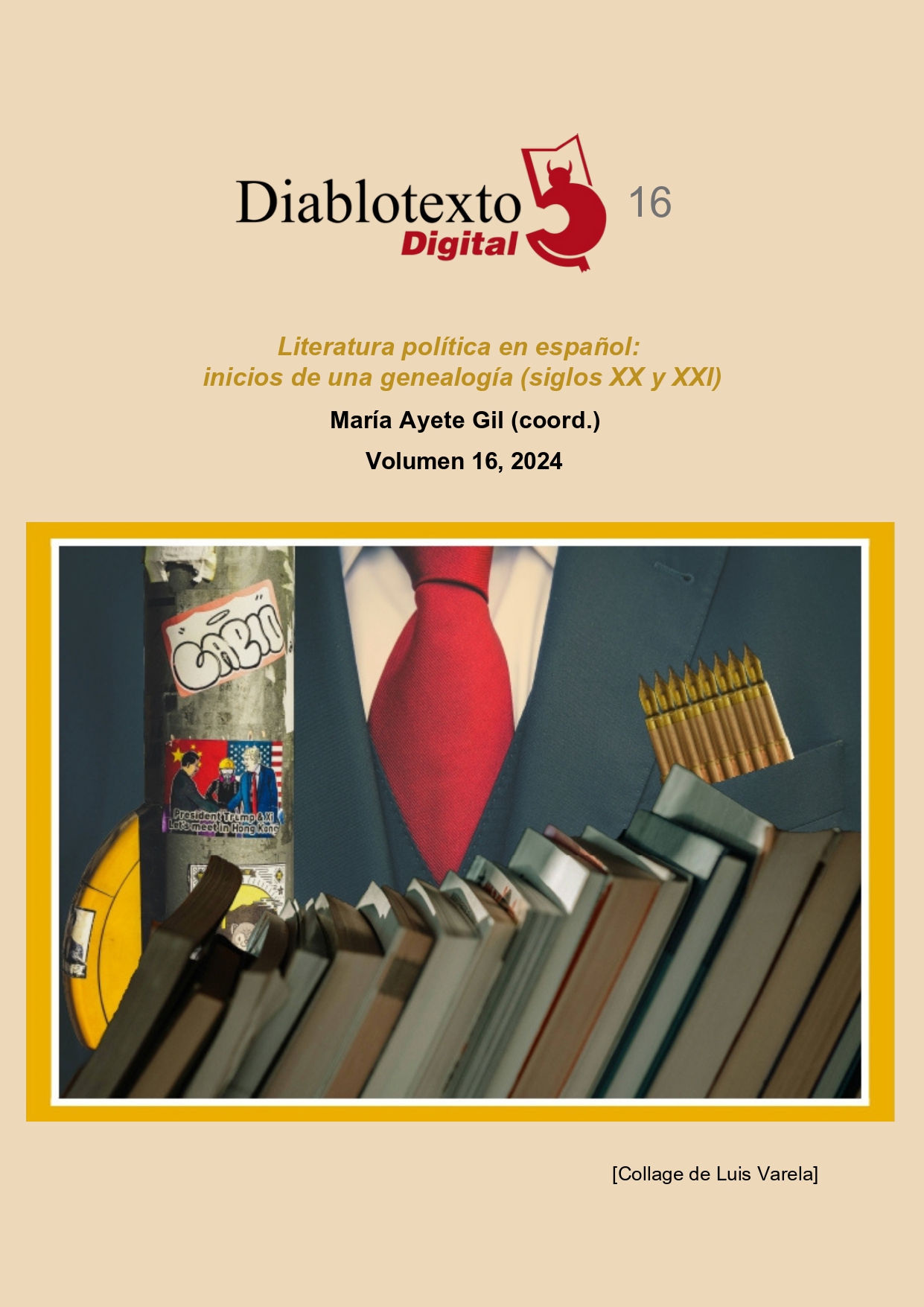Ama (2019) or class consciousness through illness
DOI:
https://doi.org/10.7203/diablotexto.16.27293Keywords:
working class literature, social class, Ama, memory Abstract
Abstract
In this article, a reading proposal of José Ignacio Carnero's initiatory novel, Ama (2019), is carried out based on the specific application of class analysis. The work revolves around the illness of the protagonist's mother who, affected by cancer, functions as a trigger for the working-class memory of the son. The starting hypothesis holds that the play is composed from the scheme of relations that Pierre Bourdieu (2002, 2003) uses to identify the working class. Hence, the analysis of Ama is organized around five frequent elements in the composition of that social class and especially within the most recent working class narratives: the metaliterary reflection on memory, the figure of the mother as representative of the working woman, the class consciousness of the protagonist, the scarce cultural heritage received and the impostor syndrome. The class analysis applied to Carnero's novel allows, ultimately, to observe the way in which it proposes a reactualization of the working class in the 21st century from the tools of the literary medium.
 Downloads
Downloads
 References
References
BOURDIEU, Pierre (2002). La distinción: criterio y bases sociales del gusto. Madrid: Taurus.
BOURDIEU, Pierre; PASSERON, Jean Claude (2003). Los herederos: los estudiantes y la cultura. Madrid: Siglo Veintiuno editores.
CARNEROS, Laura (2022). Proletaria consentida. Madrid: Caballo de Troya.
DEL MOLINO, Sergio (2016). La España vacía. Barcelona: Alfaguara.
FEDERICI, Silvia (2018). El salario del patriarcado. Críticas feministas al marxismo. Madrid: Traficantes de sueños.
GUTIÉRREZ, Alicia B. (2005). Las prácticas sociales: una introducción a Pierre Bourdieu. Buenos Aires: Ferreyra Editor.
IGNACIO CARNERO, José (2019). Ama. Madrid: Caballo de Troya.
IGNACIO CARNERO, José (2021). Hombres que caminan solos. Barcelona: Literatura Random House.
MARTÍNEZ FERNÁNDEZ, Ángela (2021a). “Los hijos de los hijos de la clase obrera: fantasmas, barrios e impostores en la ficción literaria del siglo XXI”, Etudes romanes de Brno, 2 (42), 103-120.
MARTÍNEZ FERNÁNDEZ, Ángela (2021b). “Una genealogía de lo obrero en el campo cultural: narrativas de la carencia y para la disputa”, Orillas. Rivista d'Ispanistica, n.º 10, pp. 31-60.
MANN, Thomas (1997). Las fuentes del poder social. Madrid: Alianza Editorial.
OLIN WRIGHT, Eric (2018). Comprender las clases sociales. Madrid: Akal.
PACHECO, Anna (2019). Listas, guapas, limpias. Madrid: Caballo de Troya.
SIMÓN, Ana Iris (2020). Feria. Barcelona: Círculo de Tiza.
SOMOLINOS, Cristina (2022). Rojas las manos. Mujeres trabajadoras en la narrativa española contemporánea. Granada: Comares.
WILLIS, Paul (2017). Aprendiendo a trabajar. Madrid: Akal.
Downloads
Published
How to Cite
-
Abstract28
-
PDF (Español)10
Issue
Section
License
Licencia de reconocimiento de Creative Commons “Reconocimiento - No Comercia l- Sin Obra Derivada
Authors who publish with this journal agree to the following items:
The authors will keep their copyright and guarantee the journal the right of first publication of their work, which will be simultaneously subject to the Creative Commons license that allows third parties to share the work indicating its author and its first publication in the journal. The authors may adopt other non-exclusive license agreements to distribute the version of the published work (e.g., depositing it in an institutional telematic file or publishing it in a monographic volume), with an acknowledgment of its initial publication in this journal. The authors are allowed and encouraged to disseminate their work through the Internet (e.g., in institutional telematic archives or on their website) before and during the submission process, which can produce interesting exchanges and increase citations of the published work. (See Effect of Open Access)




